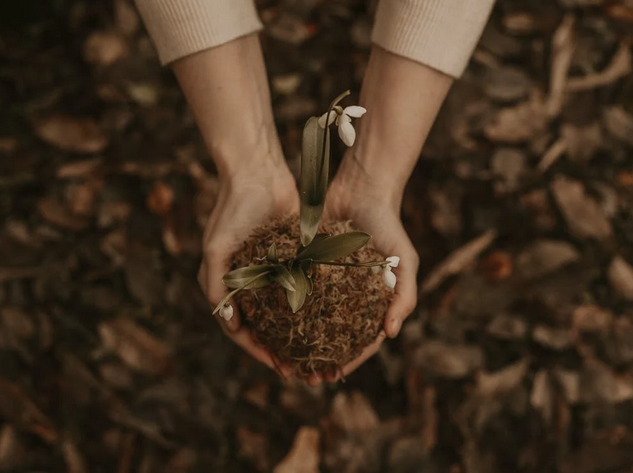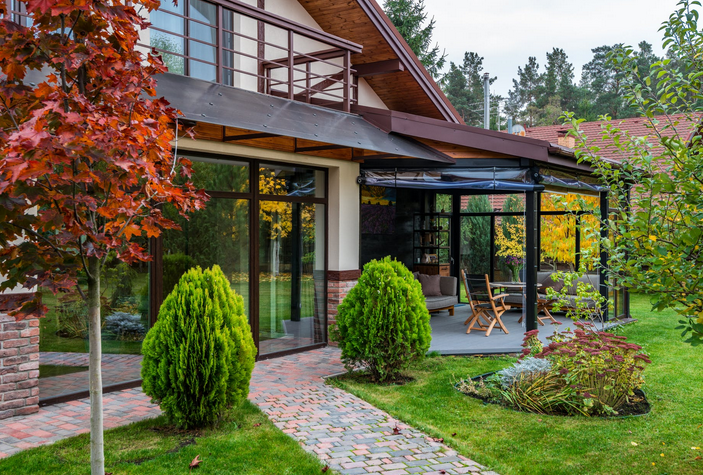Like most homeowners, you probably take great pride in your backyard. It is a place where you can relax and escape the hustle and bustle of everyday life. But what good is a beautiful backyard if the soil is not fertile enough to support healthy plants? Without good soil, your plants will not grow properly and will not be able to produce the desired results. Consult more about it with a qualified landscaper at the Schaumburg Tree Service. In this blog post, we will discuss some tips on improving the fertility of your soil and making your backyard paradise even more beautiful.
Get Your Soil Tested
 The first step to improving the fertility of your soil is to get it tested. You can have your soil tested by a professional or do it yourself with a home soil test kit. A soil test will tell you what nutrients are lacking in your soil and what amendments need to be added. Once you know what nutrients are lacking, you can take steps to add them back into the ground.
The first step to improving the fertility of your soil is to get it tested. You can have your soil tested by a professional or do it yourself with a home soil test kit. A soil test will tell you what nutrients are lacking in your soil and what amendments need to be added. Once you know what nutrients are lacking, you can take steps to add them back into the ground.
When it comes to improving the fertility of your soil, there is no one-size-fits-all solution. The amendments that you need to add to your soil will depend on your soil test results. For example, if your soil test shows that your soil is low in nitrogen, you must add a nitrogen-rich amendment such as compost or manure.
Add Compost or Manure
Adding compost or manure to your soil is a great way to improve fertility. Compost is full of nutrients that plants need to grow, including nitrogen, phosphorus, and potassium. Manure is also full of nutrients that plants need to grow. In addition to adding essential nutrients to the soil, compost and manure also help to improve the soil’s structure. This is important because it allows the roots of plants to penetrate the soil more efficiently, which results in healthier plants.
Mulch the Soil Surface
Mulching the soil surface is another excellent way to improve its fertility. Mulch helps retain moisture in the soil, which is essential for plant growth. Mulch also helps control weeds and keep the soil surface cool, which can help prevent heat stress on plants. Adding a layer of mulch to your garden will not only improve the fertility of your soil, but it will also make your garden look more attractive.
Rotate Crops Each Year
 Finally, one of the best ways to improve the fertility of your soil is to rotate crops each year. When you plant the same crop in the same place year after year, the soil becomes depleted of the crop’s nutrients to grow. By rotating crops, you ensure that each crop gets the nutrients it needs from the soil, and you also help prevent the build-up of pests and diseases in the soil. Rotating crops is a simple way to improve the fertility of your soil and keep your garden healthy.
Finally, one of the best ways to improve the fertility of your soil is to rotate crops each year. When you plant the same crop in the same place year after year, the soil becomes depleted of the crop’s nutrients to grow. By rotating crops, you ensure that each crop gets the nutrients it needs from the soil, and you also help prevent the build-up of pests and diseases in the soil. Rotating crops is a simple way to improve the fertility of your soil and keep your garden healthy.
As you can see, there are many simple ways to improve the fertility of your soil. By following these tips, you will be on your way to growing healthier plants in your backyard.…



 When planning for a home garden, you need to consider how much space is available. Gardens can take up a lot of space, so be sure to measure and plan accordingly. If you don’t have a lot of space, there are still plenty of options for you, including container gardens or raised beds.
When planning for a home garden, you need to consider how much space is available. Gardens can take up a lot of space, so be sure to measure and plan accordingly. If you don’t have a lot of space, there are still plenty of options for you, including container gardens or raised beds. Ensure you consider the garden tools you have before starting your project. If you don’t have any, it may be cheaper to buy a set rather than purchasing each tool separately. However, if you already have a few tools and need a few more specialized items, that option might be more affordable.
Ensure you consider the garden tools you have before starting your project. If you don’t have any, it may be cheaper to buy a set rather than purchasing each tool separately. However, if you already have a few tools and need a few more specialized items, that option might be more affordable.